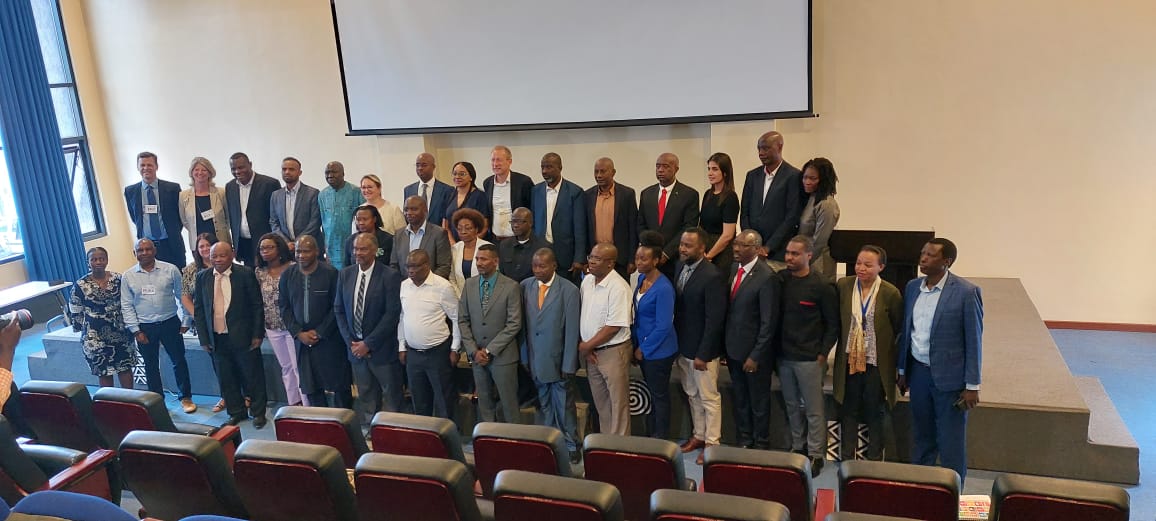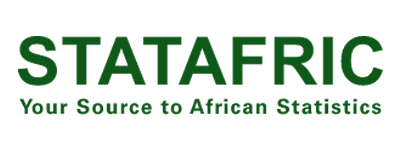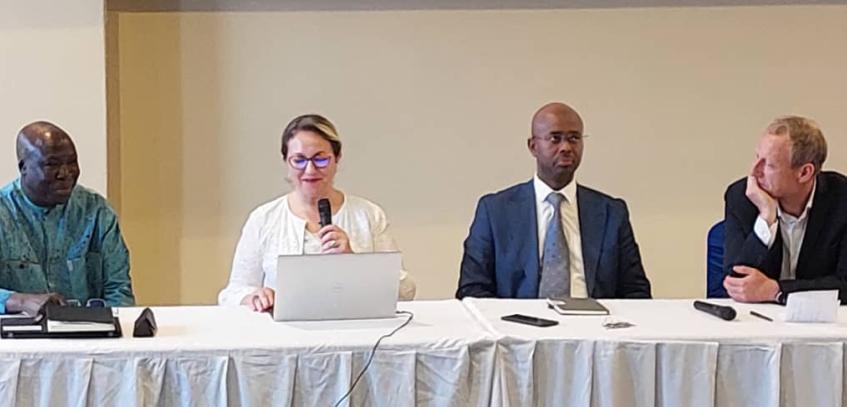The African Union Institute for Statistics (STATAFRIC) and the African Statistical Training Centre (PANSTAT), in collaboration with PARIS21 and the National Institute of Statistics of Rwanda (NISR), organized a regional training workshop in Kigali, Rwanda, held from 6th to 9th June 2023, aimed to equip National Statistical Office (NSO) Directors General, Deputy Directors General and Senior Managers with essential leadership skills to navigate the evolving data landscape. This workshop brought together more than 20 NSO Directors General and 10 female Directors General from various African Union Member States, prioritizing new Directors-General and those who had not previously participated in similar training programs.
In today's data-driven world, NSOs play a crucial role in developing and coordinating national statistical systems (NSS). The demand for data has grown exponentially due to national development plans, Agenda 2063, Agenda 2030 for sustainable development goals, and the challenges posed by the ongoing crises such as COVID-19 and climate change. To effectively respond to emerging data needs, NSO heads need to enhance their leadership skills, foster innovation, and adapt quickly to the changing landscape.
The training workshop offered NSO heads and senior managers a unique opportunity to enhance their effectiveness by gaining a greater awareness of their strengths, weaknesses, and the challenges they face. Often, NSO heads have limited opportunities to receive comprehensive feedback from staff and stakeholders outside their organization. This training aimed to bridge that gap and provide a platform for NSO heads to develop a comprehensive plan for success within their organizations and the NSS.
The primary objectives of the training were to:
- Unlock participants' potential as effective leaders in statistics development.
- Foster a deep understanding of leadership development in statistics, including emotional intelligence, psychological safety, and influence.
- Promote best practices, soft skills, and visibility of female leaders in statistics.
- Develop creativity through activities and tools to advance the statistical development agenda.
By the end of the Regional Statistical Leadership Training, participants acquired valuable knowledge and skills, including, but limited to:
- Effective leadership and emotional intelligence: Participants learned to use tools and techniques to create a conducive work environment, improve staff efficiency, and facilitate coordination within the NSS.
- Change leadership and communication: Participants understood the difference between change leadership and change management and gained insights into effective listening, network analysis, individual goal setting, and feedback techniques to drive statistics development.
- Adaptability and resilience: Participants identified different leadership styles and learned to apply the appropriate "hat" (manager, mentor, coach, etc.) in various situations. This emphasis on effective communication and resilience strengthened their ability to navigate complex relationships and promote organizational success.
- Empowering female leaders: The training recognized the unique challenges faced by female leaders in statistics. Participants explored ways to address these concerns and develop the leadership skills of women within the NSS.
The Training served as a valuable platform for NSO heads and senior managers to enhance their leadership capabilities in the dynamic data ecosystem. The workshop enabled participants to unlock their potential, promote best practices, and strengthen the statistical development agenda in their countries and regions. By developing essential leadership skills and fostering innovation, the participants are now better equipped to lead their organizations, coordinate the NSS, and contribute to the larger data ecosystem, ultimately improving the lives of people through the delivery of quality statistics.










